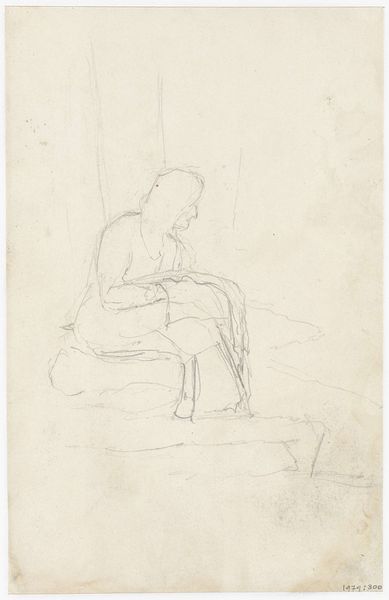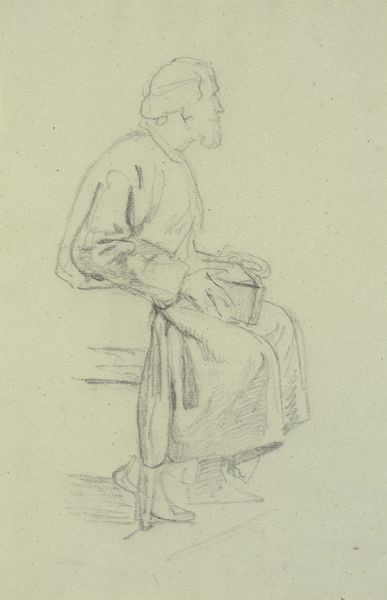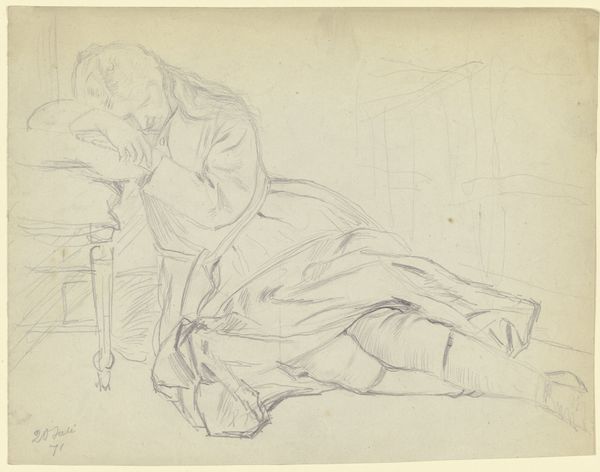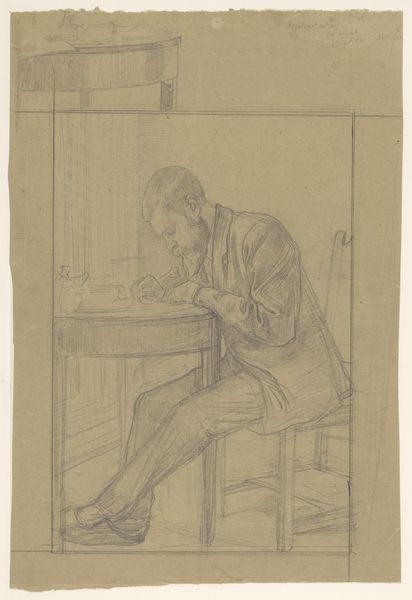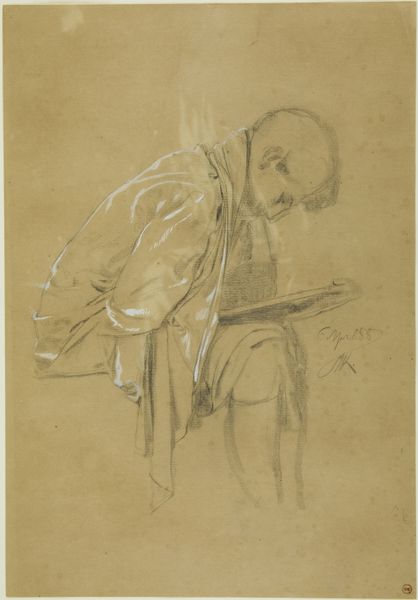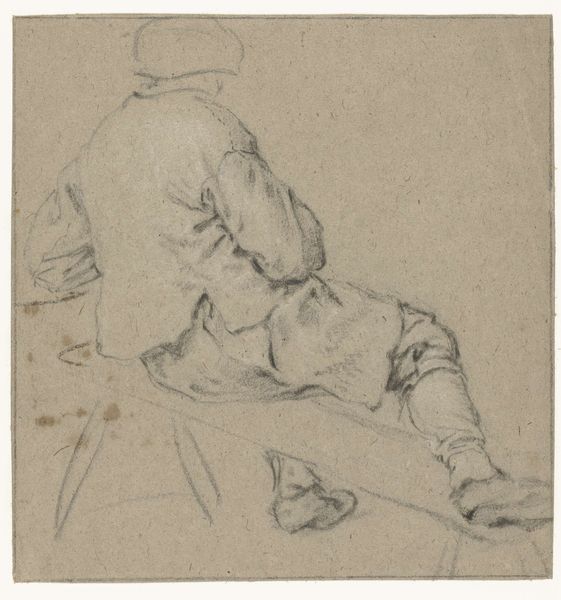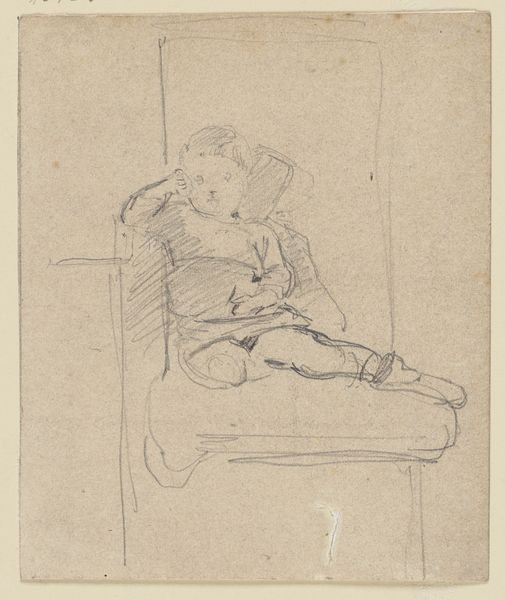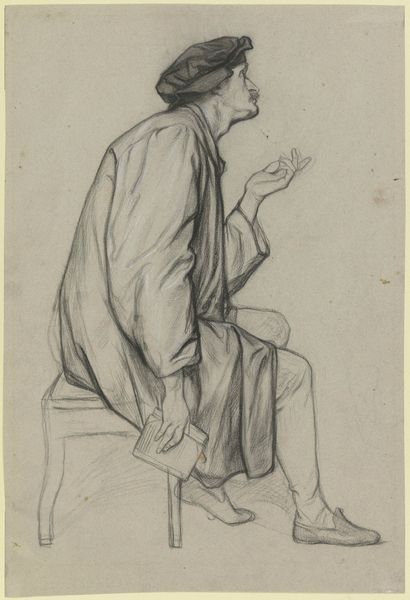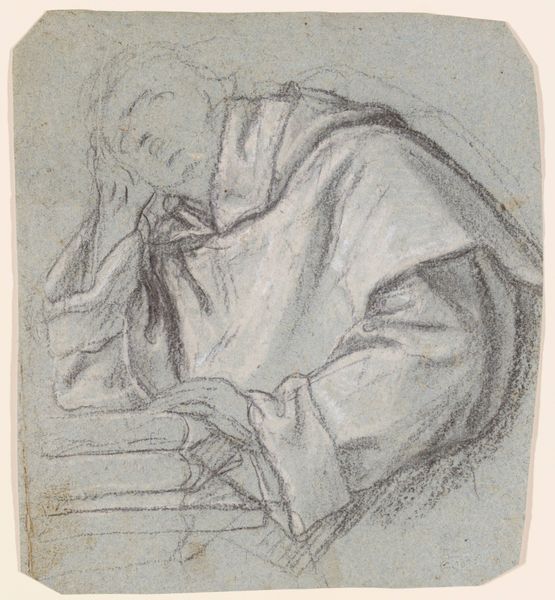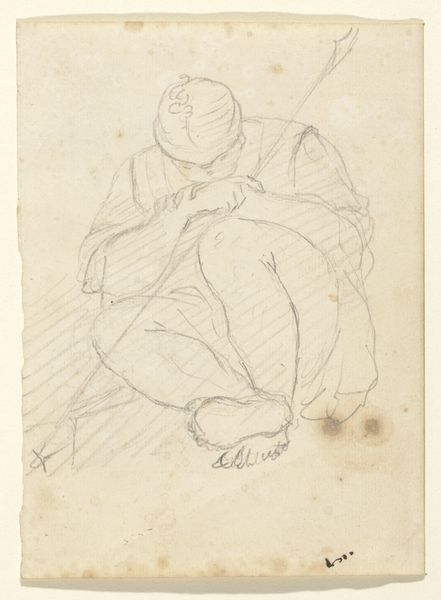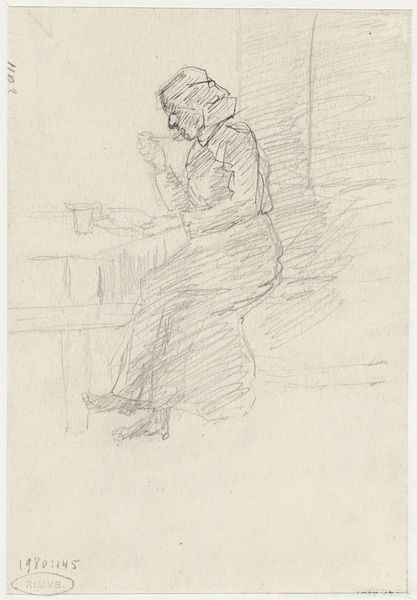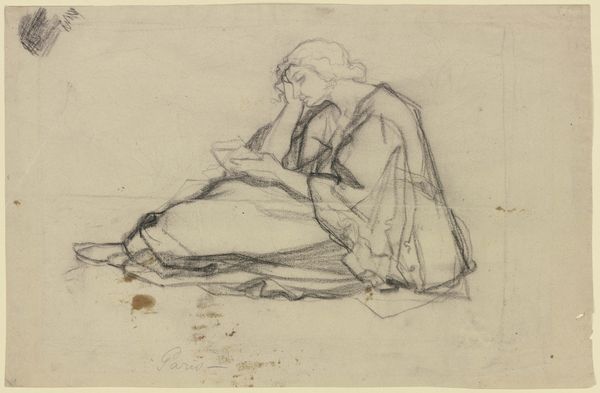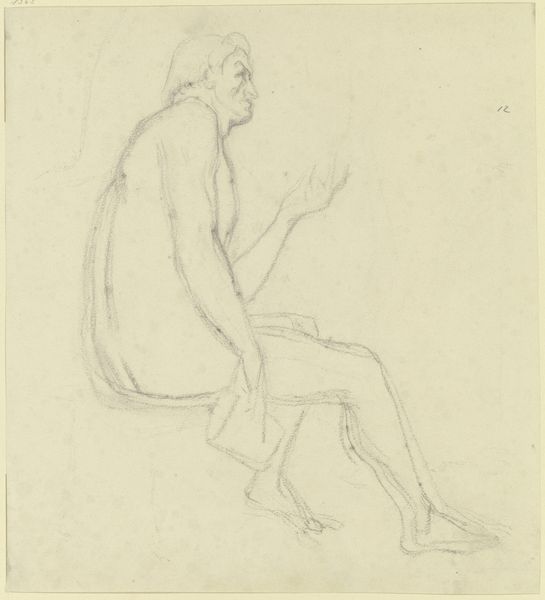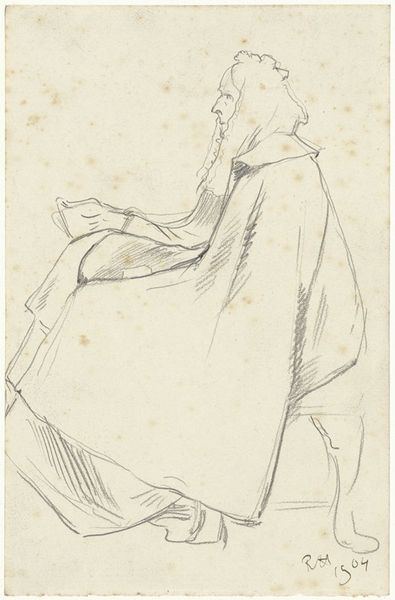
Copyright: Public Domain
Curator: Thomas Couture's "Sitting Pierrot," created around 1862, is a subtle yet evocative piece, currently residing here at the Städel Museum. It’s rendered delicately in pencil on paper. Editor: There's a melancholy to it, isn't there? Pierrot looks completely deflated, almost as if his joyful performance ended just moments ago. He feels suspended, the quiet before the applause dies away completely. Curator: Absolutely. The figure of Pierrot has, historically, represented a tragicomic longing—often depicted as melancholic, lovesick, and the butt of jokes. Here, Couture strips away any grand theatricality. Editor: Yeah, it’s like…where is the flamboyant costume we expect? This Pierrot feels vulnerable. And that loose pencil work only enhances that fragility. I mean, look at how his clown shoes are scuffed! He seems so burdened and lost. It really brings out an aura of raw honesty. Curator: Indeed. Considering the social landscape of mid-19th century France, there's a sense of the individual confronting a rapidly changing world. The Pierrot figure might be considered a symbol of societal alienation at the dawn of the modern era, a study in romantic disillusionment. Editor: Gosh, so much for bringing joy and laughter, huh? Instead we have a loner. This drawing feels strangely relatable, as so many in that period began facing existential crises amid political upheaval and unprecedented industrialization. Maybe Pierrot needed a cigarette! Or therapy. Curator: Ha! Well, let's just say he serves as a potent visual metaphor. Editor: Right! Beyond historical themes, "Sitting Pierrot" captures a very raw feeling: How sometimes the mask falls away and only vulnerability is left behind. Curator: And it is this deeply human element that speaks to us, even today. Editor: Well, after staring into Pierrot’s soul for a bit, I feel slightly less alone now. So that’s nice! Curator: I find, through Couture’s poignant piece, that considering art as both social mirror and philosophical study can offer us unique avenues toward greater cultural and self-understanding.
Comments
No comments
Be the first to comment and join the conversation on the ultimate creative platform.
